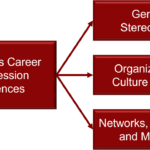
by admin | Dec 13, 2010 | Uncategorized
Christmas gift suggestions: To your enemy, forgiveness. To an opponent, tolerance. To a friend, your heart. To a customer, service. To all, charity. To every child, a good example. To yourself, respect." Oren Arnold, Journalist
~~~~~~~~~~~~~~~~~~~~~~~~~~~~~~~~~~~~~~~~~~~~~~~~~~~~~~~~~~~~~~~~~~~~~~~
Managing Christmas Stress
Despite the appearance of joyous enthusiasm this time of year, the reality for many women is an enormous rush of increased stress. The demands of the festive season can make it difficult to implement or maintain regular healthy coping techniques. The extra time to get the shopping done bites into our usual exercise regime. Tempting goodies and drinks override our healthy eating routine. Our budget goes sideways as we overuse the credit card in a desperate attempt to buy all the right gifts. Relationship issues, unresolved conflicts, and the loneliness that is part of the season for many, can seem overwhelming.
When a stressful event happens to us, we automatically evaluate the situation mentally. In other words how we perceive the event affects the level of stress we experience. Responding rather than reacting to circumstancs is most effective for reducing the stress we perceive. Learning to respond, however, requires that we slow down and carefully examine the situation and all of the implications.
Consider the following tips for managing stress this holiday season:
1. How much time do you spend trying to find just the right gifts? (Research estimates women spend up to 100 hours buying gifts, however, the materialistic aspects of festive celebrations in fact undermines well-being, while family and spiritual activities are what increase satisfaction). Try asking for a wish list from each person. Or consider other ways to give, i.e. a contribution of your time to someone, or a donation to a special charity in someone's name.
2. As you make your to do list and check it twice, what could you delegate, drop completely or do differently? What else might help, i.e. consider pot luck meals,or check out the wonderful prepared foods that can be purchased.
3. How realistic are the expectations you hold for yourself and your loved ones at this time of year? Families change and grow. Rituals and traditions can be adjusted accordingly. Choose the ones you want to hold on to and be open to creating new ones. If your grown children can't come to your home this year, how else could you celebrate with them, or who else might share this time with you?
4. Does your increased stress show up in irritable behavior and impatience with others? Consider putting petty grievances aside and accepting people as they are. They may be feeling the effects of holiday stress too.
5. Does the Christmas season represent a time of grief and loss for you? Reaching out to help others can bring consolation. Consider helping a social service agency deliver services to the less fortunate. Being with others who have also experienced loss can help alleviate feelings of isolation. Attending a grief support group or contacting someone whose support has been meaningful to you can also be helpful. We need each other – reaching out is healing.
My Christmas wish for you is that support is bountiful, love is overflowing, and serenity is enduring.
Christmas Blessings,
Kathleen
~~~~~~~~~~~~~~~~~~~~~~~~~~~~~~~~~~~~~~~~~~~~~~~~~~~~~~~~~~~~~~~~~~~~~~~~~~~~~~~

by admin | Nov 9, 2010 | Uncategorized
"Nobody can go back and start a new beginning, but anyone can start today and make a new ending." Maria Robertson
~~~~~~~~~~~~~~~~~~~~~~~~~~~~~~~~~~~~~~~~~~~~~~~~~~~~~~~~~~~~~~~~~~~~~~~~~~~~~~~~~~~~~~~~~~~
Change: Crisis or Opportunity
Sudden change happened in my family recently as my husband suffered an accident resulting in a complex surgery requiring a lengthy physical therapy rehabilitation program. Fortunately, the prognosis is good and at some point we expect our lives to return to "normal."
At the time of this incident a good friend wrote "Life, it feels so routine until it isn't!" What an apt description for how our lives can change drastically in the space of a few seconds.
Indeed, change is a constant in everyone's life. The most challenging changes we face typically occur as a result of a crisis. When change is forced upon us by crisis, it can feel theatening because we may not be in control and we often have limited knowledge of what might lie ahead. This uncertainty can create uncomfortable feelings of confusion, fear or panic. Change can also be particularly difficult
when it means that we must give something up like a cherished hobby, a comforting habit, or a belief-especially about ourselves.
The word "crisis" is derived from the Greek "krisis: and means, literally, "decision." Similarly, crisis is often an opportunity for a time of decision in our lives. However, we often need to experience a period of adaptation to the change before we are open to see opportunity. The adaptation process will be affected by our
pevious experience and personality, as most of us have ingrained, habitual responses to how we perceive and manage change.
However long the process takes, once individuals move through the change process, there arise opportunities to create new visions for the way we want our life to be.
The very nature of change means that what was, is no longer, and what is or what will be, is only limited by imagination or creativity. Areas of our lives that can be open for examination in this visioning process may include purpose, priorities, identity, work, relationships,etc.
The following steps outline a model for confronting and managing change, either personally or professionally:
1. Assess the current situation and the reason for change
2. Clarify or create a new vision
3. Determine the key strategies for achieving the vision
4. Establish the structure required to support the change
5. Develop any required skills necessary to support the process
6. Establish implementation plans including support mechanisms
7. Monitor progress, and reflect.
Success is enhanced when we are able to perceive the crises in our lives, big or small as opportunities for meaning and personal growth and a chance to change direction.
Take good care of yourself,
Kathleen
~~~~~~~~~~~~~~~~~~~~~~~~~~~~~~~~~~~~~~~~~~~~~~~~~~~~~~~~~~~~~~~~~~~~~~~

by admin | Oct 13, 2010 | Uncategorized
Find a career that suits your temperament.
Do what feels natural and comfortable.
~~~~~~~~~~~~~~~~~~~~~~~~~~~~~~~~~~~~~~~~~~~~~~~~~~~~~~~~~~~~~~~~~~~~~~~
The Importance of Temperament
Temperament is an individual's inherited and enduring set of emotional and behavioral tendencies. This article explores how temperament can influence careers and life.
The science of behavioral molecular genetics is working hard to understand whether predisposition is in our DNA – what aspects of temperament are changeable and which ones are firmly established in our genetic make-up.
Carl Jung, founder of analytical psychology, believed that introversion and extroversion qualities are both innate and co-exist within each individual. He proposed that an individual unconsciously presents a mask or a facade, which he called persona, to satisfy the demands of the situation. The theoretical fields studying infant
attachment, social learning and family systems push against the idea of innate predispositions or inborn traits – the age old "nature vs nurture" controversy.
Commencing in the late 1980's, a Harvard psychology professor, Jerome Kagan conducted longitudinal studies that sought to measure the presence and persistence of inborn temperaments.He believed that we have inherited distinctive neurobiological profiles in the amygdala – the brain's early warning system.
Kagan's research on several hundred subjects from infancy through adolesence, indicated that an individual's response to new stimuli produced a mild alarm in some, while in others the identical stimuli signalled an imminent emergency. He termed these differences as low reactive and high reactive. Kagan's research also showed that a highly reactive individual could learn to tolerate what her brain signaled as high risk. In other words, her persona could operate competently enough to manage the nervous or fear-filled situation. However, this same shy, highly reactive type of individual is not likely to choose a career as a politician.
In the last 10 years DNA researchers have identifed genes that increase the likelihood of being shy, optimistic, risk-taking, outgoing and several other temperamental biases. It's important to note, however, that this genetic predisposition does not cause behavior or emotional states, but rather makes us more vulnerable to
them.
This understanding of temperament confirms the importance of finding a career-life niche in which your particular temperament will be of the greatest value. No more squeezing square pegs into round holes. Whether you are a highly sensitive person preferring to avoid large groups or a gregarious, party type – the perfect career awaits your careful and intentional discovery.
Take good care of yourself,
Kathleen
Acknowledgements: Psychotherapy Networker Article: Who Do You Think You are? by Marian Sandmaier)
~~~~~~~~~~~~~~~~~~~~~~~~~~~~~~~~~~~~~~~~~~~~~~~~~~~~~~~~~~~~~~~~~~~~~~~~~~~~~~~~
The Edmonton Woman's Show
I am honored to be speaking at this year's Fall Woman's Show October 16th and 17th
Superwoman is Alive & She's Stressed is being presented at 12:30 on Saturday and
again at 3:30 pm on Sunday.
Taking Charge of Your Career is scheduled for 2 pm on Saturday and 1:30 pm on Sunday.
Both are on the LifeStyle Stage.
Stop by my booth. Enter a draw for lunch at the Hardware Grill.
Hope to see you there!
Order Copies of My Books For Christmas!!
Ordinary Women, Extraordinary Lives:
A Woman's Career Legacy
Part inspirational text, part journal, this book offers a chance to reflect on what
it takes to be a strong woman today while providing a place to record your own career
legacy. A wonderful gift for a special woman in your life…your mom, a mentor,
colleague, friend or yourself.
Ordinary Women, Extraordinary Lives:
A Woman's Career Diary
Whatever your work/family context and values, this career planning diary invites
you to explore your distinctive attributes and to delve into and then document
your career experiences.
Each of these books can stand alone or work in conjunction with one another. While
the Diary provides an opportunity for effective career planning, the Legacy provides
a way to recall important experiences and factors that contributed to your success
and the sharing of your legacy.
Both books make an enduring gift for yourself or someone you love.
Go to www.kathleenjohnston.com [http://r20.rs6.net/tn.jsp?llr=smpmm4bab&et=1103772896620&s=471&e=001uozlDttKBSHKOPhvKA4ZBvbIHYy9qz1gIkZFrcEsXs0EDkRW7_V-vT-ttBXPY-GgmUtUJC2qULnNxGGr943FLaUYwPgZTBvX5gIC9nrovpwFC7Q-tUOnjl_F3xc11G9V]
to order today.
FEATURES
Your Career
The Importance of Temperament
The Edmonton Woman's Show
Books Now Available
~~~~~~~~~~~~~~~~~~~~~~~~~~~~~~~~~~~~~~~~~~~~~~~~~~~~~~~~~~~~~~~~~~~~~~~~~~~~~~~~
Check out Canadian Federation of Business & Professional Women's Clubs [http://r20.rs6.net/tn.jsp?llr=smpmm4bab&et=1103772896620&s=471&e=001uozlDttKBSEDScm8B-dnBjO2lXTklePmBTfJ7U_TC6Shrm8iXbRxnTtsga0FyyR_Eei3653rvFsc9gLhboDal3-hzX_v8VHYDtmpFA8tgkXCD1RgWp6Y7A==]
The Edmonton Chapter held their first meeting Oct. 12th. As their guest speaker,
I was honored to present:
Womens Careers:
Past, Present, Future.
~~~~~~~~~~~~~~~~~~~~~~~~~~~~~~~~~~~~~~~~~~~~~~~~~~~~~~~~~~~~~~~~~~~~~~~~~~~~~~~~
~~~~~~~~~~~~~~~~~~~~~~~~~~~~~~~~~~~~~~~~~~~~~~~~~~~~~~~~~~~~~~~~~~~~~~~~~~~~~~~~
CONTACT
I run a private coaching, counselling, and consulting business.
Check out my web site for Services, or to book a Speaking or Training Event. You
can also contact me directly [mailto:kj@kathleenjohnston.com]with a brief description
of your situation and I'll be happy to follow up

by admin | Sep 2, 2010 | Uncategorized
"You can't shake hands with a clenched fist."
Indira Gandhi
~~~~~~~~~~~~~~~~~~~~~~~~~~~~~~~~~~~~~~~~~~~~~~~~~~~~~~~~~~~~~~~~~~~~~~~
Passive-Aggressive Relationships
Most of us understand that dealing with a passive-aggressive person's behaviour is often both confusing and highly frustrating. What might not be as clearly appreciated is that this sydrome also creates endless problems and disappointmnts for the individual exhibiting the behavior. The personal passive-aggressive person's relationships are often chaotic, and regardless of their level of intelligence, their career development track record is usually somewhat less than stellar.
Passive-aggressive people are able to trap others in situations where they feel that whatever they do is wrong. They tend to be negative and highly critical, often denying responsibility and blaming others for their difficulties. When you are the person blamed, the resulting pattern of self-questioning can be crazy-making, to say the least. How best to cope with this conduct is the focus of this newsletter.
A passive-aggressive coworker can erode and undermine everyone's morale and productivity (interpersonal, familial relationshps tend also to be stormy and destructive). Those involved with the passive-aggressive personality are constantly on edge as they anticipate the next volatile struggle even as they strive to to understand behavior
that alternates between hostile defiance and asking forgiveness and promising improved performance, another part of the crazy-making condundrum.
Career-related passive-aggressive individuals can be identified by the following list of typical behaviours:
-procrastinating
-complaining incessantly
-resisting demands for improved performance
-generating chaos
-being intentionally inefficient
-making excuses and lying
-constantly criticizing others
-avoiding responsibility (by claiming forgetfulness, for example)
-exhibiting sullen, argumentative behaviour
-blaming others
-being chronically late
-hiding feelings of hostility and anger, whether justified or not
Passive-aggressive behaviour is a distinctly ineffective way to deal with stress or frustration, and one that impacts almost all interpersonal or occupational situations negatively. The passive-aggressive person may experience several of the following emotions simultaneously.
-envy
-resentment
-fearing competition, dependency, intimacy, and/or authority
-feeling themselves to be misunderstood and/or unappreciated
-feeling ambivalent about relationships
Passive-aggressive behaviour is a deeply ingrained, unconscious personality trait that may well have taken years to develop. It's important to remember that nothing you do will effectively alter that type of behaviour. What you can do is deal very directly with the individual and refuse to engage in deleterious mind games. An angry response is a reliable indicator that you have been drawn into this destructive cycle.
Here are a few tips designed to help you first identify and then live or work with a passive-aggressive person:
1.Clarify the specific behaviors that make you uncomfortable by observing the person carefully. Be clear about what bothers you, so you know what you are up against and can plan effective strategies to deal with them.
2.Define expectations and behaviours. There are defined roles within every relationship.Each role has a set of expectations – our own and those of the other person. Roles and expectations need to be clearly defined, agreed upon, and accepted by both parties.
3. Model assertive communication. The passive-aggressive person is an ineffective communicator. In response, you should always use an assertive relational style – for example, when working on a project with them, be sure to record the required tasks and then draw up a written, formal agreement that everyone involved will sign.
Also remember that the passive aggressive person's resistance is passive. It's up to you to model appropriate communication and air issues fully and respectfully as they arise.
4. Do not confront directly without witnesses present. The passive-aggressive person will deny, lie, cover up, and make excuses. Speaking in the presence of witnesses lessens their opportunity to operate in their preferred manner. It also gives you credibility with those in authority. Whenever the opportunity exists, provide positive feedback and reinforce the passive-aggressive person's accomplishments in order
to counter their low self-esteem as much as possible.
5. Limit your exposure. It may become necessary to avoid the person in order to protect and take care of yourself. If/when you feel that is necessary, learn to let go and simply do the best you can.
6. If the passive-aggressive person is your boss, change jobs! A passive-aggressive supervisor may sabotage your efforts, not share pertinent information, withhold resources needed to do your job, and/or conveniently "forget" things that might reflect poorly on them. The likelihood that they will change is minimal to non-existent.
You need to move on to a healthier work environment rather than struggle within a potentially toxic atmosphere.
This complex newsletter topic is lengthier than past editions, but even in this truncated forum, it is important to understand the syndrome's implications and multifaceted manifestations if we are to address it at all effectively. I hope it will help those who share their work or personal life with a passive-aggressive individual.
(Source: Materials were adapted from the U.S. Library of Medicine)
Take good care of yourself – that's your job!
Kathleen
~~~~~~~~~~~~~~~~~~~~~~~~~~~~~~~~~~~~~~~~~~~~~~~~~~~~~~~~~~~~~~~~~~~~~~~
Books Now Available [http://r20.rs6.net/tn.jsp?llr=smpmm4bab&et=1103651832383&s=471&e=001Wdj-eH_wKsXJCFMD19grOywpp8DeMrbRV3UD5mc7wGzQMsawPsMJp09bOxug4K6GUnvQcdWQ4EbvTL323_qFKN2D6p0z6840D3x_5TQ_D-Wg_Vny8LL8CQ37C6LSbpwB]
Ordinary Women, Extraordinary Lives: A Woman's Career Legacy
This is a unique book – part inspirational text, part journal, it offers a chance to reflect on what it takes to be a strong woman while providing a place to record your own career legacy. A wonderful gift for a special woman in your life…your mom, a mentor, colleague, friend or yourself.
Learn from the stories of eight exceptional women such as Lois Hole, the self-described "simple farmwoman" who became Alberta's lieutenant governor and "Queen of Hugs, "Madam Justice Trussler, a provincial court judge who made significant changes to family law, and Helen Hays whose efforts to bring dignity and respite to the dying are recognized world-wide. And other lesser known but no less remarkable women
who've overcome struggles to achieve great things. All of them have made their world a better place.
Are you like them – an ordinary woman living an extraordinary life? You owe it to yourself to share your extraordinary story and create your own legacy of exception for those you love.
Ordinary Women, Extraordinary Lives:A Woman's Career Diary
This special book presents 18 important topics relevant to a woman's career. Examples include Authenticity, Competition, Mentors, Power, Rewards and Self-Esteem to name a few. The Career Diary has been created to generate personal insight and act as a catalyst for meaningful personal reflection or group discussion.
Great care has been taken to ensure the contents will have widespread appeal, regardless of one's work, family context and values. The reader is invited to explore her distinctive attributes, delve into and document her career experiences, from both her paid and unpaid work roles. The result can be meaningful career planning to support increased career success and satisfaction.
Each of these books can stand alone or work in conjunction with one another. While the Diary provides an opportunity for effective career planning, the Legacy provides a way to recall important experiences and factors that contributed to your success and the sharing of your legacy.
Both books make an enduring gift for yourself or someone you love.
Go to www.kathleenjohnston.com [http://r20.rs6.net/tn.jsp?llr=smpmm4bab&et=1103651832383&s=471&e=001Wdj-eH_wKsXJCFMD19grOywpp8DeMrbRV3UD5mc7wGzQMsawPsMJp09bOxug4K6GUnvQcdWQ4EbvTL323_qFKN2D6p0z6840D3x_5TQ_D-Wg_Vny8LL8CQ37C6LSbpwB]
to order today.
FEATURES
Your Career
Passive-Aggressive Behavior
Resources
Books Now Available
~~~~~~~~~~~~~~~~~~~~~~~~~~~~~~~~~~~~~~~~~~~~~~~~~~~~~~~~~~~~~~~~~~~~~~~~~~~~~~~~
Resources
Overcoming Passive Aggression: How to Stop Hidden Anger from Spoiling Relationships,
Career and Happiness by Tim Murphy, PhD and Loriann Hoff Oberlin. 2005. Order from
Amazon: Overcoming Passive-Aggression [http://r20.rs6.net/tn.jsp?llr=smpmm4bab&et=1103651832383&s=471&e=001Wdj-eH_wKsVTjlWBtdVlFHvDDk8_DmVaR6Rzp128vVKF7YAiscooJou_0wngN7WGt2dB3kK3jLCBVvY1m59ttBCM_MDwZy3hkqPdUFiyhkSyl970suJsvajTHWQgB5nh70ccDEFMrpYEgs14h3ccU3peD-tYIaY3OVWbRXv0OFOR37ybuffdHOK2Whgyq024ppiQPAsWUmEcVtQ5nbzLv1qGyQNWjvO6CQrrXrDlDnjZdUaPQ4P9x4xOKBTmRIexB4AvlnIVxAFFaEo61i3advDfVrDtdbOXhZjORy_RDcI4wGMmGC2N6ZG0uMeUIruw]
The Passive Aggressive Organization. 2005. Article by Harvard Business Review. Read
the article online:
The Passive Aggressive Organization [http://r20.rs6.net/tn.jsp?llr=smpmm4bab&et=1103651832383&s=471&e=001Wdj-eH_wKsUIDskcg-R17nTY8Lw1UDlfbYnawRvRaq4WEyEraoSMK8Q5SWYYIGkia34XvpRznGP3a0i39Qaq70nLBxOQptprl9gLMd6jo-kkBm3DlHx9hYp9wHxwRaXxOpPFEyKsZe2SqAQRQLLp-EMt-Uw9QuwgjhlVgj4GhfHfvdZJrpdbxQ==]
~~~~~~~~~~~~~~~~~~~~~~~~~~~~~~~~~~~~~~~~~~~~~~~~~~~~~~~~~~~~~~~~~~~~~~~~~~~~~~~~
~~~~~~~~~~~~~~~~~~~~~~~~~~~~~~~~~~~~~~~~~~~~~~~~~~~~~~~~~~~~~~~~~~~~~~~~~~~~~~~~
CONTACT
I run a private coaching, counselling, and consulting business.
Check out my web site for Services, or to book a Speaking or Training Event. You
can also contact me directly [mailto:kj@kathleenjohnston.com]with a brief description
of your situation and I'll be happy to follow up.

by admin | Jul 18, 2010 | Uncategorized
Your career is like a chunk of clay that can be remolded and reshaped as you move through life. Consider yours now. Is it soft and pliable? Is it full of air bubbles? Is it Inflexible and hard as stone?
~~~~~~~~~~~~~~~~~~~~~~~~~~~~~~~~~~~~~~~~~~~~~~~~~~~~~~~~~~~~~~~~~~~~~~~
Your Annual Career Checkup
Most of us have an annual medical checkup as a regular life event because we have learned that it is a very wise thing to do.
What if we were to do the same thing with our career – check in once a year to see how "healthy" we are doing in each of our work roles?
Howard Figler, Ph.D. has been a recognized leader in career development for more than 30 years. He suggests the following principles for planning an Annual Career Checkup with your favorite career counsellor:
* Everyone has a career.
* One's career is continually in a state of change and thus needs ongoing attention.
* An annual "checkup" will likely lead to better career experiences and better outcomes.
* Many careers can be improved without changing jobs.
* A regular checkup prevents problems from occurring.
Here are some items that could be examined in your Annual Career Checkup:
Career direction – How active are you in managing your career? Are you fully and authentically engaged by your current roles and responsibilities? What might need to change?
Strengths – How easily are you able to describe your natural talents and your significant strengths? How well are you applying your strengths in your work roles? in your relationships?
Motivators and Interests – Every person is motivated by different factors and does not perform well unless they are present. Interests and motivation are related factors. Do you know your unique interests? What motivates you, what moves you to action?
Career prospects – Are there new fields or new opportunities you want to explore? How can you gather the best information about them?
Competencies – What skills or abilities might you need to improve upon, or acquire, in order to leverage career opportunities or to increase satisfaction in each of your career roles?
Managing Priorities -What's most important to you? How do you want to live and work? What strategies are you employing to ensure healthy living, strong relationships and meaningful work?
Job search techniques– Is your current resume a powerful marketing tool or is it a lengthy chronology of your work history and achievements? How up-to-date is your networking list?
Interview skills – It is not uncommon for skilled and competent people to fail miserably when it comes time to present themselves in an interview. Do you need to improve your interview strategies or practice behavioral-based interviewing skills?
Negotiating skills – Could you benefit from learning how to communicate and dialogue more effectively to improve the rewards you receive for your services?
Ideally, individuals do not wait until they are facing a crisis before accessing career help. A yearly examination of all facets of one's career is a prudent strategy for increasing satisfaction and joy in life. Use your birthday to remind yourself to book this important task.
(Source: Adapted from The Career Counselor's Handbook by Howard Figler and Richard Bolles)
Take good care of yourself, .
Kathleen
~~~~~~~~~~~~~~~~~~~~~~~~~~~~~~~~~~~~~~~~~~~~~~~~~~~~~~~~~~~~~~~~~~~~~~~
Books Available:
Ordinary Women, Extraordinary Lives: A Woman's Career Legacy
A chance to celebrate women's lives! Part inspirational text, part journal, A Woman's Career Legacy makes a unique and thoughtful gift for a special woman in your life…your mom, a mentor, a good friend, yourself. Learn from the stories of eight exceptional women including Lois Hole, Dr. Helen Hays, Justice Marguerite Trussler, Barbara Marriage and others – ordinary women who made a difference through their work and their lives. Then write your extraordinary story. Create your own legacy for your loved ones.
Ordinary Women, Extraordinary Lives: A Woman's Career Diary
Strategize your career! This book contains 18 topics relevant to today's career woman, along with ample journal pages for personal reflection. A Woman's Career Diary invites you to record your experiences in all of the career roles you perform. The book provides a chance to reflect, reveal and reminisce about your career. Enhance your success and satisfaction by using the diary topics as a basis for group discussions, sharing your insights and experiences with other women.
Both books are an enduring gift for yourself or someone you love.
Contact Kathleen and place your order!









